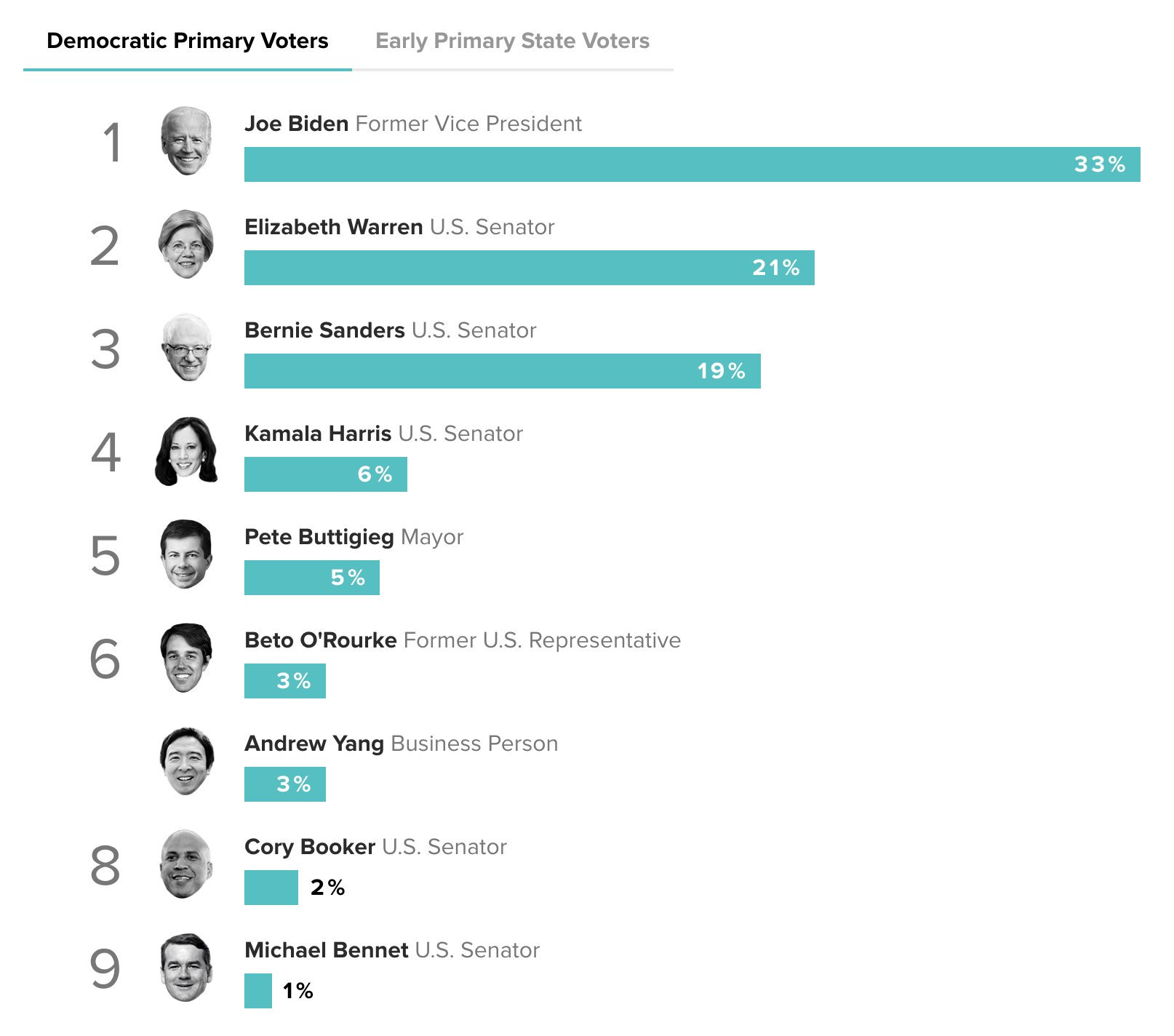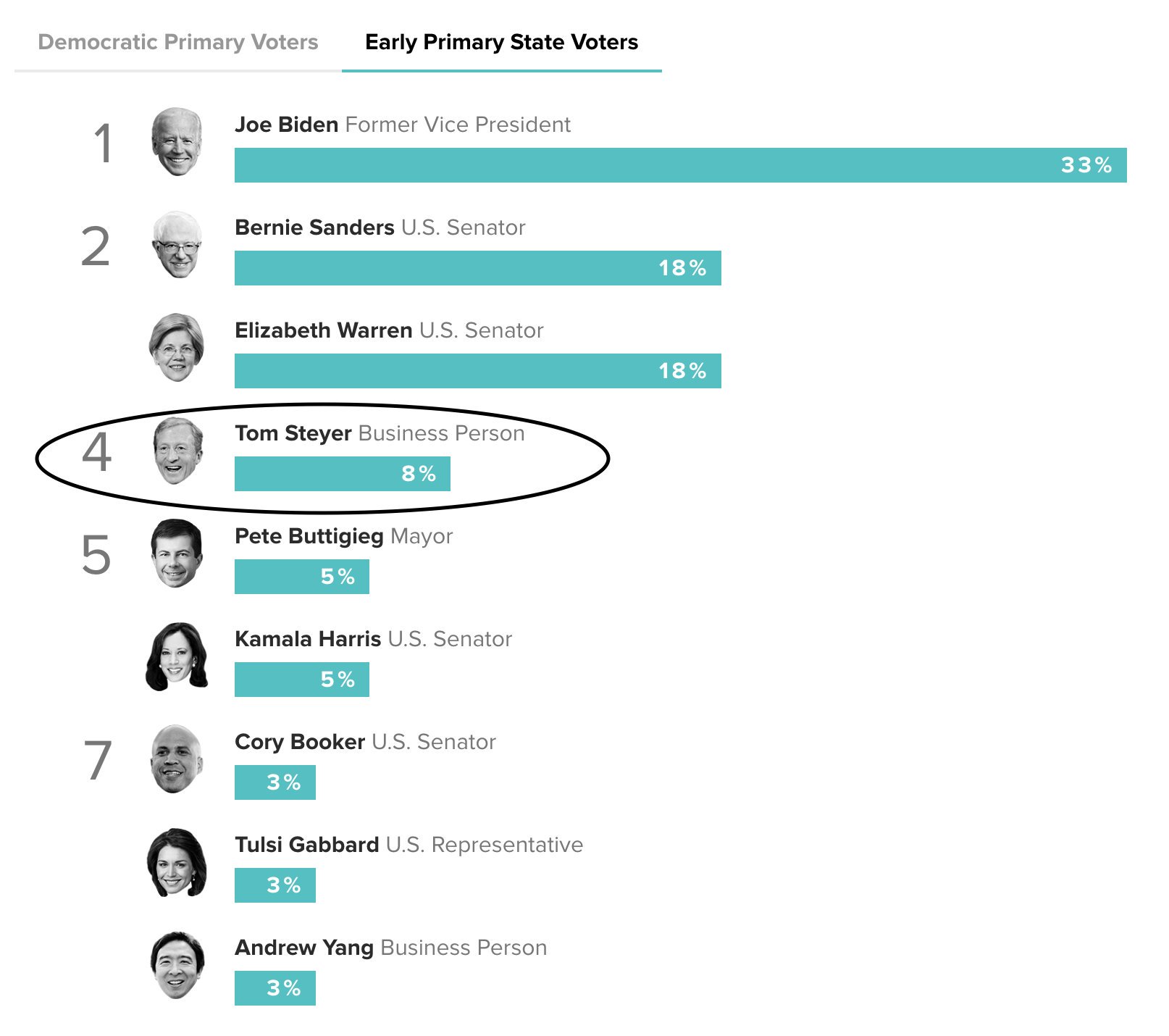Epistemic status: speculative
Andrew Yang understands AI X-risk. Tom Steyer has spent $7 million on adds in early primary states, and it has had a big effect:


If a candidate gets more than 15% of the vote in Iowa (in any given caucus), they get delegates. Doing that consistently in many caucuses would be an important milestone for outsider-candidates. And I'm probably biased because I think many of his policies are correct, but I think that if Andrew Yang just becomes mainstream, and accepted by some "sensible people" after some early primaries, there's a decent chance he would win the primary. (And I think he has at least a 50% chance of beating Trump). It also seems surprisingly easy to have an outsize influence in the money-in-politics landscape. Peter Thiel's early investment in Trump looks brilliant today (at accomplishing the terrible goal of installing a protectionist).
From an AI policy standpoint, having the leader of the free world on board would be big. This opportunity is potentially one that makes AI policy money constrained rather than talent constrained for the moment.

If you are looking at presidential candidates, why restrict your analysis to AI alignment?
If you're super focused on that issue, then it will definitely be better to spend your money on actual AI research, or on some kind of direct effort to push the government to consider the issue (if such an effort exists).
When judging among the presidential candidates, other issues matter too! And in this context, they should be weighted more by their sheer importance than by philanthropic neglectedness. So AI risk is not obviously the most important.
With some help from other people I comprehensively reviewed 2020 candidates here: https://t.co/kMby2RDNDx
The conclusion is that yes, Yang is one of the best candidates to support - alongside Booker, Buttigieg, and Republican primary challengers. Partially due to his awareness of AI risk. But in the updates I've made for the 8th edition (and what I'm about to change now, seeing some other comments here about the lack of tractability for this issue), Buttigieg seems to move ahead to being the best Democrat by a small margin. Of course these judgments are pretty uncertain so you could argue that they are wrong if you find some flaw or omission in the report. Very early on, I decided that both Yang and Buttigieg were not good candidates, but that changed as I gathered new information about them.
But it's wrong to judge a presidential candidate merely by their point of view on any single issue, including AI alignment.
In the old version of the report, in maybe a couple of sentences, I incorrectly conflated the status of Keynesianism in general with Post-Keynesian in particular. In reality, New Keynesianism is accepted whereas Post-Keynesian ideas are heterodox, as I describe in the above comment. I have already updated the language in revisions. But this error of mine didn't matter anyway because I wasn't yet judging politicians for their stances on economic sti... (read more)